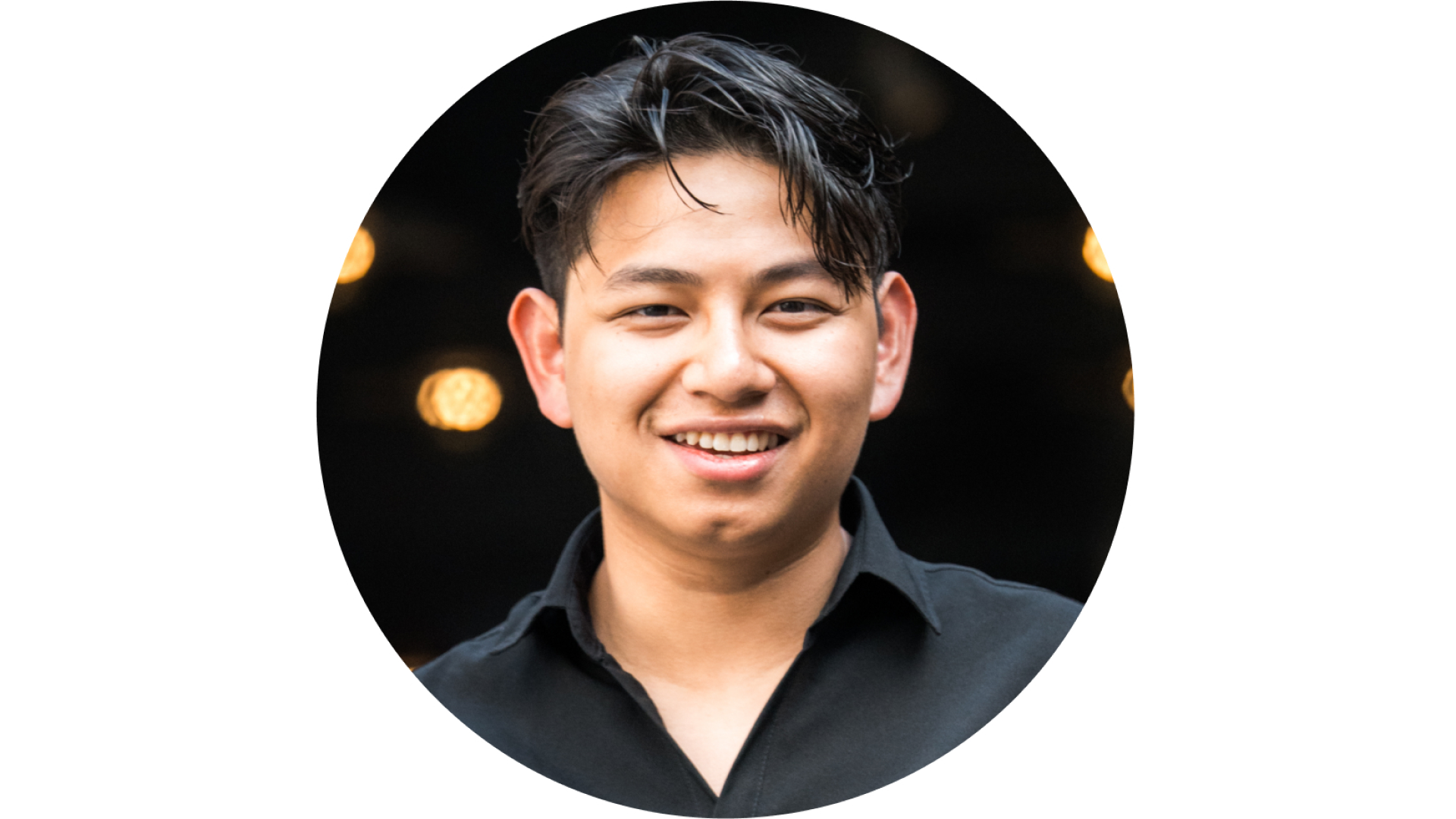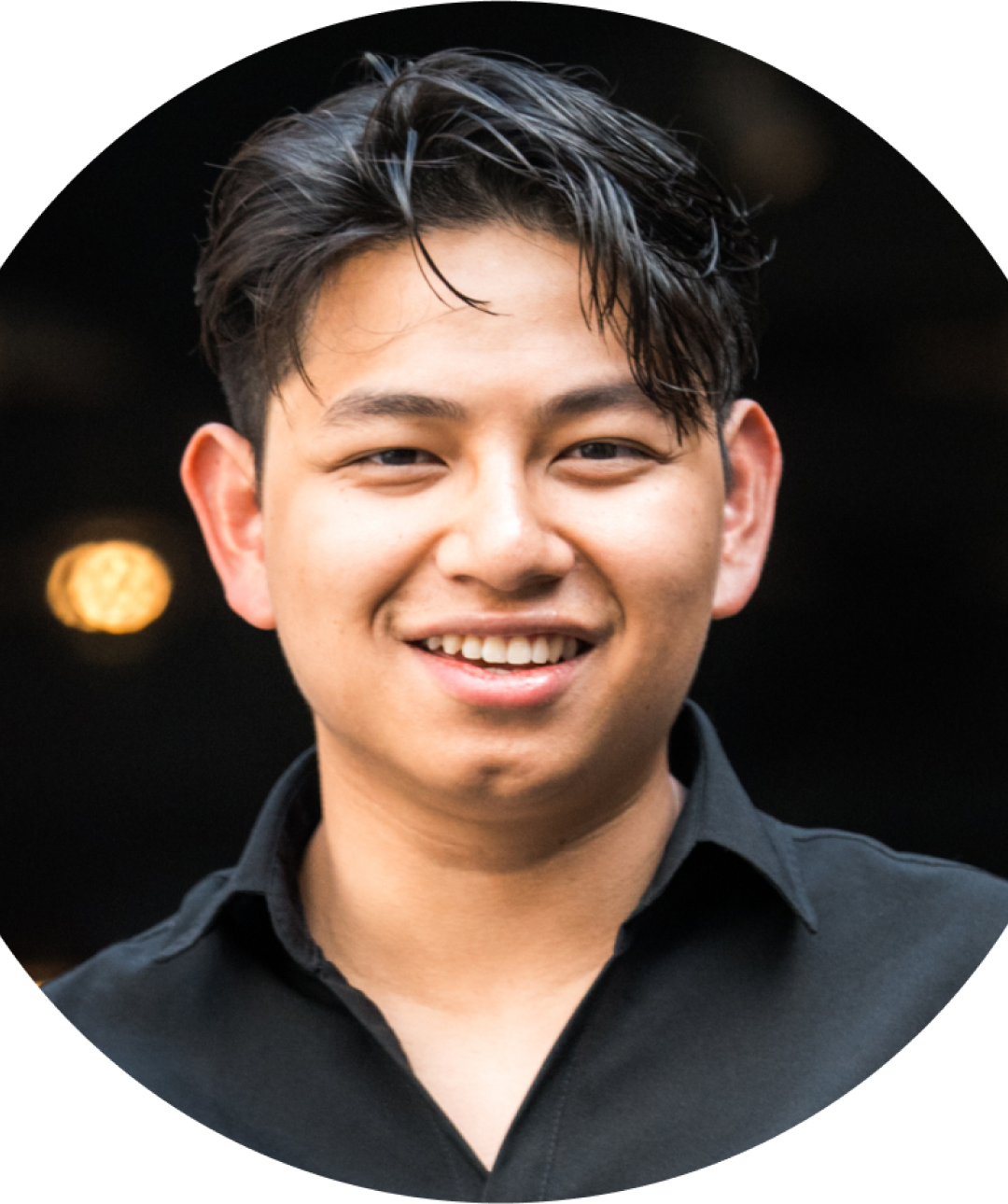

Born and raised in Phnom Penh, Cambodia, Samady Ou was profoundly influenced by the experience of growing up under a dictatorship. After studying law and management in the United States, he became a champion of Cambodian democracy, leading student protests and contributing to an underground newspaper.
As youth president of the Cambodian National Rescue Party America and youth vice chairman of the Council of Asian Liberals and Democrats, Samady has played a significant role in raising global awareness about Cambodia’s challenges. Despite personal risks, he continues to mentor young activists and remains a passionate advocate for democracy worldwide.
Q: Can you share any pivotal moments from your childhood in Phnom Penh that shaped your commitment to democracy and activism?
Growing up in Cambodia until the age of 10, I was taught in history classes to express gratitude toward communism and neighboring Vietnam for rescuing us from the Khmer Rouge and the genocide. However, crucial parts of our history were omitted. For example, there was no mention of Cambodia’s first prime ministers prior to Hun Sen. Instead, the narrative in our history books centered around Hun Sen, portraying him as a selfless leader who sacrificed everything to go to Vietnam, learn about communism, and return to save Cambodia from genocide. These books also conveniently downplayed his earlier role as a high-ranking official within the Khmer Rouge. According to the official narrative, Hun Sen broke away because he couldn’t bear the killing of Cambodians and sought Vietnam’s help — a sanitized version of events that framed him as a savior.
It wasn’t until my family moved to the United States that I began to uncover the deeper truths about Cambodia’s history. Growing up, I had no idea that my father was an opposition figure. He was sponsored to come to the US and gained citizenship, and it was during this time that I started to learn about the realities of Cambodia’s past. Surprisingly, I hadn’t even realized I had been living under a dictatorship — it was like we were all systematically brainwashed. My father eventually began to share more about his work as a politician and member of the Cambodia National Rescue Party, and that’s when my journey as an activist began. Learning the truth about my country’s history was the spark that ignited my passion for change.
Q: How has your work shaped your perspective on the state of democracy in Cambodia? What approaches are you employing to amplify global awareness of the country’s political challenges?
I am currently youth vice chairman of the Council of Asian Liberals and Democrats (CALD), a prominent institution in Southeast Asia, comprising liberal and democratic political members from across the Association of Southeast Asian Nations (ASEAN). In my role, I leverage my position to establish connections with various political party members throughout the region. This enables me to foster dialogue on creating movements and grassroots support within these political parties. Many of these parties were once in power and possess valuable resources to aid our efforts. For instance, they have shared strategies for rescuing dissident Cambodian activists in Thailand when they are detained.
In Thailand, a hybrid authoritarian state that neighbors Cambodia, we have facilitated the release of numerous activists through our connections. Additionally, we focus on youth training to cultivate future leaders in Cambodia, preparing them to take action when the opportunity arises. Nonviolence has proven an effective strategy for political change, and capacity building is a core element of our work. In essence, my approach has centered on building networks to spark meaningful conversations and equipping individuals with the tools and resources needed to protect and support people in their countries.
In Cambodia, approximately half of the GDP is linked to China, which has led to increased vulnerability to cybercrime and human trafficking. Consequently, Cambodia has one of the highest rates of human trafficking and cybercrime in the region. Under Hun Sen’s leadership, the country’s borders were opened to Chinese nationals and criminal networks, facilitating the influx of illicit money into the economy. This shift has drawn Cambodia away from its partnerships with the US and EU, steering it toward authoritarian governance with China as its closest ally.
Q: What lessons have you learned from your global advocacy efforts that you believe are most important for strengthening democracy in Cambodia and beyond?
Building movements requires adapting to the current political and social climate. One key lesson I’ve learned is that while political parties have institutional influence, they are often suited to specific periods. For instance, the years 2013–17 were opportune for certain approaches, but the landscape has since shifted. With many politicians now in exile, the focus must shift toward forming a broader movement.
Earlier this year, Mu Sochua established the Khmer Movement for Democracy (KMD) after stepping down as the leader of her political party and now serves as the leader of the movement. KMD aims to unite civil society organizations and grassroots networks to create a cohesive and effective movement, which thus far has involved months of planning and dialogue — asking participants about their core objectives and aligning those with our shared vision. For example, it took extensive discussions among 20 grassroots leaders in South Korea to align on a strategy. While there was significant back-and-forth, we all agreed on one point: Hun Sen is a dictator, and we must find ways to make him listen to the Cambodian people.
By organizing back-to-back protests globally, we demonstrated the power of nonviolent resistance. One of our successes was pressuring Hun Sen to back down on the Cambodia-Laos-Vietnam Development Triangle Area project, which had been a key focus of our protests. For the first time in my life, I saw him compromise on a human rights issue, a direct result of our collective actions. More than 20,000 people mobilized in the diaspora, with their protests inspiring those inside Cambodia to take notice and gain new ideas for resistance.
Hun Sen’s primary aim is to control the narrative within Cambodia, isolating the population from external influences. Our strategy has been to collaborate with grassroots leaders, particularly in South Korea, to create visible movements that resonate within the diaspora and beyond. By connecting these efforts to those inside Cambodia, we’ve shown how an exiled movement can successfully challenge authoritarian control.
Q: How have your learnings from FF influenced your work?
I want to thank Srdja Popovic — an expert in nonviolent resistance and founder of the Center for Applied Nonviolent Action and Strategies (CANVAS) — for an incredibly thorough strategy session that had a profound impact. It allowed me to adapt our approach to better align with Cambodian culture and the perspectives of its youth. In South Korea, we held a workshop for youth and grassroots leaders focused on nonviolent strategies that Srdja introduced. The participants were deeply engaged and eager to continue learning and sharing these methods to build movements through peaceful means.
This is particularly significant for Cambodians, as the country’s history is marked by the trauma of genocide. Hun Sen’s rise to power was stained with violence, leaving nonviolence largely unknown in our collective experience. However, the younger generation, who didn’t live through the Khmer Rouge era, are captivated by the idea that change can be achieved nonviolently through people power. Srdja’s teachings are having a profound influence on these young leaders, inspiring them as they work to build democracy in Cambodia.
Q: How do you balance the challenges of working across cultural and political contexts in your international advocacy efforts?
It’s challenging, but we’re approaching it from a collective perspective, focusing on transnational oppression and identifying the keywords that resonate with Cambodians from a human rights standpoint. It’s not enough to address Cambodian issues in isolation; we need to connect them to broader concerns across Southeast Asia. A key shared issue is transnational repression, and we’re advocating for the passage of the Transnational Repression Act in Washington, DC.
When discussing human rights in Cambodia, mass grassroots support from the Cambodian diaspora and community can be limited. However, framing the conversation around sovereignty and the influence of China in Cambodia tends to engage people more effectively.
Q: What keeps you hopeful about the future of democracy in Cambodia despite ongoing challenges?
Seventy percent of Cambodia’s population is youth. The genocide, which occurred between 1975 and 1979, wiped out much of the older generation, leaving Cambodia a predominantly young country. These youth didn’t experience the horrors of genocide and war firsthand, so they bring fresh perspectives. Additionally, there are 2 million young Cambodians living in the diaspora in free countries, where they’ve been exposed to different views on rights and democracy. This is precisely what Hun Sen fears most — allowing elections through embassies, as it could empower these diaspora youths. Currently, Cambodians must be inside the country to vote, but in a freer future, we will push for elections that include those living abroad. This vision gives me hope for Cambodia.
Looking ahead, Thailand might see significant change in 2027 if a genuinely democratic government comes to power. This shift could provide Cambodian activists with a safe space to work without fear of persecution. It would also allow us to educate exiled Cambodians in Thailand about free elections. Hun Sen perpetuates the narrative that his departure would lead to another genocide, keeping voters in fear. It’s crucial to break this cycle by teaching people that a post-Hun Sen Cambodia can be peaceful and democratic.
The Freedom Fellowship is a unique, one-year program that gives human rights advocates, social entrepreneurs, and nonprofit leaders from challenging political environments the opportunity to increase the impact of their work. Through mentorship and hands-on training sessions, fellows develop critical skills and join a growing community of human rights activists.
If you are interested in learning more about or donating to the Freedom Fellowship, we encourage you to contact Jhanisse Vaca-Daza at [email protected].
Hit enter to search or ESC to close